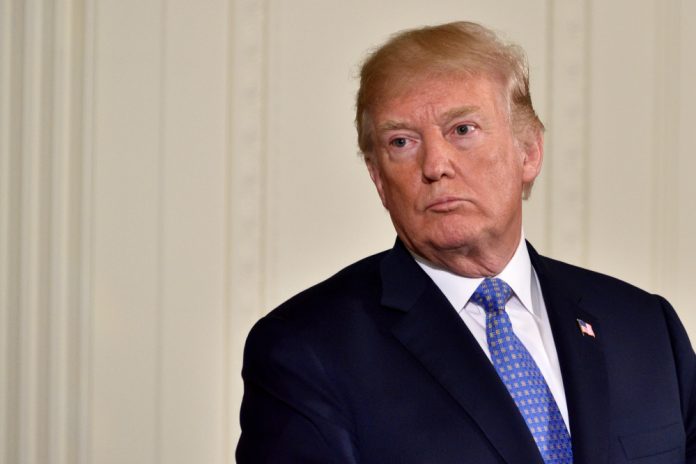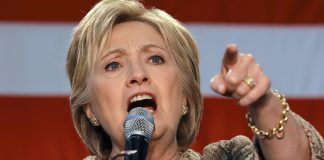Soured by what he calls a “witch hunt” against Brazil’s former president, Donald Trump admitted the 50% tariffs on Brazilian goods are “in part” retaliatory – a decision that might have a massive impact on how Americans start their days.
A scathing message from U.S. President Donald Trump on July 9 sent shockwaves through Brazil, igniting a political firestorm and pushing U.S.-Brazil relations to a new low.
Trump announced plans to impose tariffs of up to 50% on Brazilian imports, “due in part” to the South American country’s “insidious attacks” on U.S. tech companies, and for conducting a “witch hunt” against former President Jair Bolsonaro – a longtime Trump ally now facing prosecution for allegedly trying to overturn Brazil’s 2022 election results.
Brazil’s Capitol riot
The tension comes on the heels of the January 8, 2023, riots in Brazil, where hundreds of Bolsonaro supporters stormed Brazil’s Congress, Supreme Court, and presidential palace – a chilling echo of the January 6 U.S. Capitol riot.
Bolsonaro has denied any involvement in the chaos, much like Trump’s own denial of responsibility for the events in Washington, D.C.
“This Trial should not be taking place. It is a Witch Hunt that should end IMMEDIATELY!” the POTUS wrote in the letter posted on Truth Social.
Suggesting that the country’s treatment of the former president is “an international disgrace,” he explained the 50% tariffs are “necessary” to “rectify the grave injustices of the current regime.”
Brazil fires back
Trump’s aggressive move is the latest jab in an ongoing political feud with Brazil’s current president, Luiz Inácio Lula da Silva.
“Brazil is a sovereign nation with independent institutions and will not accept any form of tutelage,” Lula da Silva fired back in a July 9 post shared on X. “The judicial proceedings against those responsible for planning the coup d’état fall exclusively under the jurisdiction of Brazil’s Judicial Branch…In Brazil, freedom of expression must not be confused with aggression or violent practices,” he added, referencing Trump’s defence of Bolsonaro’s role in the January 8 riots.
Earlier, Brazilian Minister of Institutional Affairs Gleisi Hoffmann also criticized Trump: “The time when Brazil was subservient to the US was the time of Bolsonaro.”
“The US president should take care of his own problems, which are not few, and respect the sovereignty of Brazil and our judiciary,” she added, per BBC.
‘Brazil will sell its coffee elsewhere’
While many in Brazilian politics expected Trump to voice support for Bolsonaro, few anticipated such a sweeping economic retaliation.
Coffee lovers are already feeling the sting of soaring prices, with coffee costs nearing record highs after a 70% spike last year driven by tight supplies.
And, in the days leading up to the massive tariff hike, coffee prices – including at-home coffee brands – started to climb again.
On July 10, Arabica – grown in Brazil – futures jumped 1.3%, and industry insiders warn that that the tariffs might bring Brazilian coffee shipments to the U.S. to a standstill.
“A tariff of this size would all but shut down that flow. Brazilian exporters won’t absorb it. U.S. roasters can’t,” said senior coffee broker and consultant Michael Nugent, owner of California-based MJ Nugent & Co, told Reuters. “Bottom line: Brazil will sell its coffee elsewhere. The U.S. will buy coffee from someone else – Colombia, Honduras, Peru, Vietnam – but not at Brazil’s volume or price,” Nugent said.
‘Better value’
Brazil is the world’s top coffee producer — and the U.S. is its biggest customer, with nearly 200 million Americans drinking coffee daily.
And, according to Reuters, in 2024 alone, the U.S. imported 8.14 million 60-kg bags (132 pounds each) from Brazil – accounting for a staggering 33% of the nation’s total coffee consumption.
US coffee, orange juice prices could surge if Trump's Brazil tariffs stick https://t.co/CFGS9mnxrr https://t.co/CFGS9mnxrr
— Reuters (@Reuters) July 10, 2025
“Countries buy more from Brazil because it offers way better value versus expensive other origins,” the director of a trading house told Reuters.
“It is not if Brazil would sell, but would U.S. buy (with the tariff)? Probably not,” he added.
OJ
And it doesn’t stop with coffee.
The U.S. has grown increasingly reliant on imports as domestic citrus production plummets, hit hard by crop disease, hurricanes, and freezing temperatures. According to reports, over half of the orange juice sold in the U.S. comes from Brazil, meaning breakfast tables across America could soon face higher prices and limited availability.
The tariffs aren’t just about politics – it could soon hit consumers directly, starting with their morning routines.
Please let us know what you think of the tariffs hitting coffee and orange juice. Will you change your morning routine or absorb the costs? Share your thoughts with us and then share this story so we can get the conversation started!

